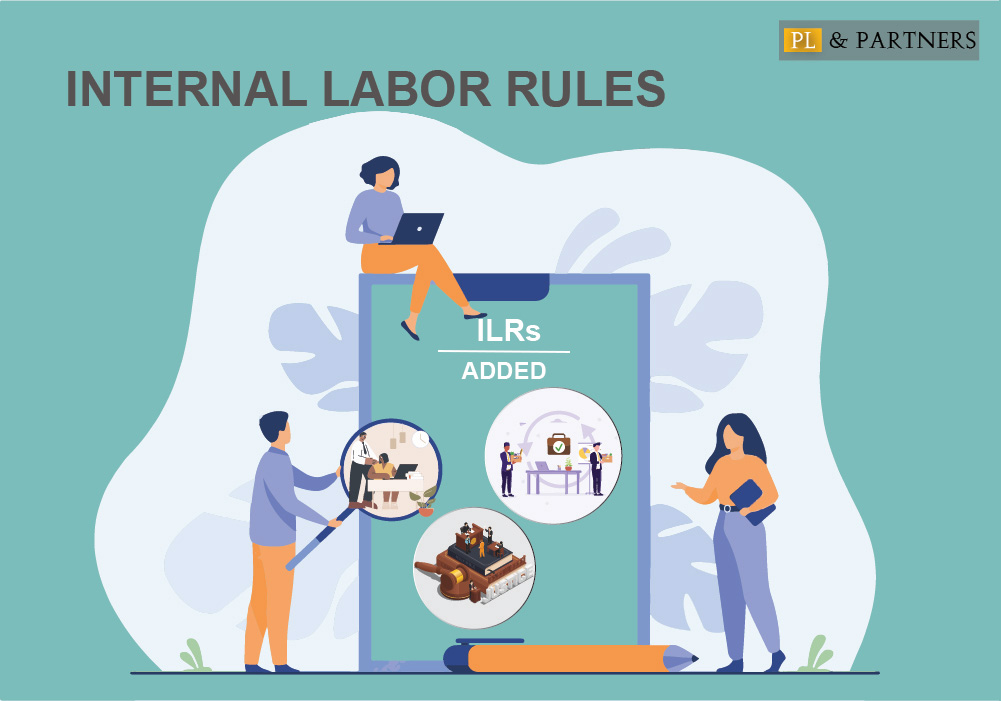Labour discipline is one of the important provisions of the Labour Code and is commonly applied by employers. However, the application process has many shortcomings.
In order to help you better understand this content, in the following article, let’s have a look at some new points related to labour discipline.
1. EXPAND THE CONCEPT OF “LABOUR DISCIPLINE”.
Previously, in the 2012 Labour Code, it was only allowed to handle labour discipline for violations specified in the internal labour rules.
This regulation is a barrier to handling when there is a violation outside the internal labour rules. For example, when an employee violates the terms in the labour contract, or violates the labour laws, there is no mechanism to handle labour discipline.
Currently, Article 117 of the Labour Code 2019 stipulates that: Labour discipline is the regulations on compliance with working hours, technologies and business practices issued by the employer in the internal labour rules and as required by law.
With this regulation, the concept of labour discipline is expanded more than before. Labour disciplinary regulations are not only reflected in the internal labour rules but also recognized in the law. Expansion of the form of expression of labour discipline also avoids the situation in which employers not having the internal labour rules, employees can be disciplined based on labour contracts or under the law. For labour disciplinary regulations already recognized by laws or stated in the labour contract, it is not mandatory for the employer to re-stipulate that in the internal labour rules to avoid overlapping and conflicts.

2. REQUIRE EMPLOYERS TO PROMULGATE INTERNAL LABOUR RULES.
Previously, the Labour Code 2012 stipulates that if an employer employs ten or more employees, they must have written internal labour rules.
However, up to now, pursuant to Article 118 of the Labour Code 2019, regardless of size of personnel, the employer must issue internal labour rules.
In which:
- If less than 10 employees are employed, it is not required to issue and register the written internal labour rules.
- If 10 or more employees are employed, it is compulsory to issue and register the internal labour rules in writing with the relevant authorities.
3. SUPPLEMENT INTERNAL LABOUR RULES WITH SOME MAIN CONTENT
The Labour Code 2019 adds 03 more main contents to the internal labour rules:
|

4. INNOVATE PROCEDURES FOR CONSULTING THE EMPLOYEE’S REPRESENTATIVE ORGANIZATION AT GRASSROOTS LEVEL IN THE PROMULGATION OF INTERNAL LABOUR RULES.
The 2012 Labour Code stipulates that: in places where grassroots trade unions have been established, employers must consult with them; In units that have not yet established a grassroots trade union, they must consult with the immediate superior trade union in formulating and promulgating internal labour rules. This regulation is reflected by many enterprises as ineffective and time-consuming.
Therefore, for the Labour Code of 2019, the employer must consult the employee’s representative organization at grassroots level for a company where there is an employee’s representative organization at grassroots level. For companies that do not have an employee’s representative organization at grassroots level, the employer does not need to carry out this procedure.
5. AMEND AND SUPPLEMENT REGULATIONS ON DISMISSAL AS A DISCIPLINARY MEASURE.
The 2012 Labour Code stipulates three types of grounds for dismissal. Labour Code 2019 stipulates 04 types of grounds for dismissal by separating acts of theft, embezzlement, gambling, intentional injury, and using drugs at workplace into a separate base for easy application, avoiding the situation of having different interpretations when referring to other acts.
In addition, the Labour Code 2019 also supplement a ground to apply dismissal to employees, which is the case where the employee engages in sexual harassment at the workplace.

In conclusion, PL & Partners Law Firm has shared with you and your friends some new points related to labour discipline in accordance with the Labour code 2019.
We hope this information will be useful to you.
In case you need further legal assistance, please contact us at:
PL AND PARTNERS LAW FIRM
Headquarters: 46th Floor, Bitexco Financial Tower, No. 2 Hai Trieu, Ben Nghe Ward, District 1, Ho Chi Minh City, Vietnam
Office: Lot 1.16 Viva Riverside, 1472 Vo Van Kiet, Ward 3, District 6, HCMC
Hotline: 093.1111.060
Email: info@pl-partners.vn
Facebook: www.facebook.com/PLLaw
Website: www.PL-PARTNERS.vn – www.HOIDAPLUAT.net – www.THUTUCPHAPLY.org










